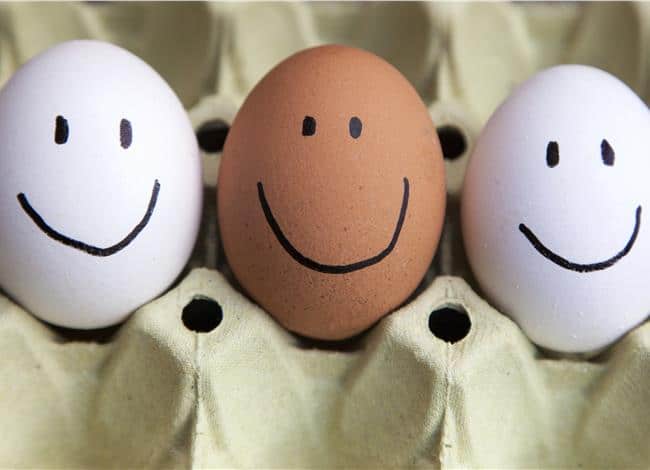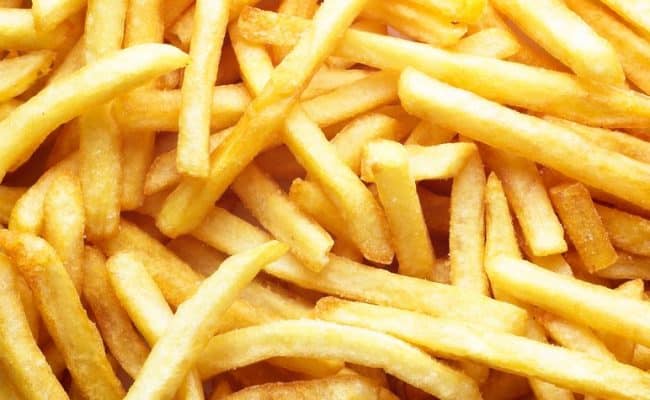
The egg diet can be considered two things: either a diet of pretty much only eggs or a more liberalized low carbohydrate high protein diet that incorporates eggs as a primary protein source.
This diet plan is naturally low in calories and high in protein which is a similar concept to many other diets.
Eating higher lean protein amounts at every meal can help control appetite and can help with maintaining muscle mass through weight loss.
Eggs are a quality protein source as well as being a source for many vitamins and minerals. In the past, eggs have been shied away from because they are relatively high in cholesterol and are a source of saturated fat.
However, the link between eggs and heart health is more positive than previously thought.
If you are just (or mainly) eating eggs, you can lose weight. However, this diet pattern is unbalanced and you will not be getting adequate intakes of other nutrients not found in eggs.
Eating too low of a calorie intake may help you shed weight quickly, but once you normalize your food intake to a balanced diet the weight can quickly come back.
Egg nutrition
A large egg provides 6 grams of protein and is about 70 calories. There are no carbohydrates in eggs, and there are about 5 grams of fat in an egg (6% DV) and 185 mg of cholesterol (62% DV).
Of the fat content from an egg, about one third is saturated fat. The rest is unsaturated fats which are considered heart healthy.
Eggs are a low calorie food and unlike the common believe, eggs are not dairy but are consider poultry, that contains many nutrients.
In fact, according to the American Egg Board (1), eggs contain in varying amounts, almost every essential vitamin and mineral needed for human health.
A large egg provides:
- 6% DV vitamin D
- 6% DV iron
- 15% DV riboflavin and B12
- 35% DV biotin
- 10% DV Zinc
- 25% DV selenium
- 25% DV choline
Eggs are a good source for the nutrient choline. Choline is a nutrient that is just starting to get recognition of the importance it provides.
Choline promotes normal cell activity, liver function and is needed to transport nutrients throughout the body (2).
Egg and heart health
Even though eggs provide many beneficial nutrients, one potential down side is the amount of cholesterol they contain. This is why in the past it has been cautioned to limit egg intake.
There is a smaller percentage of the population that is considered “hyper responders” to dietary cholesterol intake and increasing blood cholesterol intake.
For most people the dietary cholesterol we get from food has little impact on the cholesterol levels in the blood stream.
A 2016 meta analysis (3) of egg consumption and risk of coronary heart disease.
Research results suggest eating a moderate intake of about an egg per day actually may be associated with a decreased risk for stroke, and there is no clear association between egg intake and increased risk for cardiovascular disease.
Instead of focusing on dietary cholesterol intake, a diet low in trans fat, saturated fat, refined carbohydrates and sweetened beverages can help lower risk for cardiovascular disease.
Combining this with a high intake of fruits, vegetables, whole grains, heart healthy fats, not smoking, getting adequate exercise and up to a moderate alcohol consumption is considered best ways to lower risk for cardiovascular disease (4).
What is the egg diet plan?
There are several variations of what an egg diet can look like, but in general eggs are a heavy focus.
Breakfast
Breakfast can look something like 1-2 hard boiled eggs with a grape fruit or an egg omelet with vegetables.
Lunch and Dinner
Lunch and dinner can include lean protein such as chicken, fish or eggs with servings of vegetables.
Low carbohydrate fruits and vegetables are allowed with the lean protein options. This diet plan is quite limiting and may be too low in fat.
You may feel quite hungry on this eating plan even though it provides a large amount of protein.
Another variation of the egg diet is eating only hard boiled eggs. This diet plan is not recommended because it is extremely unbalanced.
You don’t need to limit yourself to only eating hard boiled eggs to lose weight!
Down sides of the egg diet plan
Anytime a diet plan cuts out whole food groups or limits choices to just a few foods, be wary. Eating a variety of foods is recommended for overall health. This diet plan is very low in calories and in carbohydrates.
Will you lose weight following this diet? Yes.
Is it sustainable for long term weight loss? Not really. This diet is very limiting.
Focusing on lean proteins and vegetables can be a key strategy for weight loss. However, adding in other nutrient dense foods such as: nuts, seeds, olive oil, fruits, whole grains and legumes provides not only variety but other healthful nutrients for your body.
Egg Diet Plan and weight loss
Eggs can fit into a sustainable part of a balanced, weight loss (or maintenance) diet. Eggs provide many nutrients, are naturally low in calories and are a good source of protein.
A 2008 study (5) compared weight loss in a group of overweight or obese participants. Participants were put into one of four groups: eggs for breakfast (E), eggs for breakfast and low calorie diet (ED), bagel for breakfast (B) or bagel breakfast and low calorie diet (BD).
After 8 weeks, the ED had greater weight loss compared to the BD group. Both groups were instructed to 1,000 calorie energy deficient, low fat diet.
The B and E groups were not instructed to restrict calories. All breakfasts for all four groups were the same amount of calories.
The E and B groups did not have significant weight loss. Researchers concluded incorporating eggs as part of a low calorie diet can be beneficial for weight loss.
However, just eating eggs will not magically result in weight loss alone. Weight loss is a combination of total food intake, lifestyle choices, medical and genetic factors.










